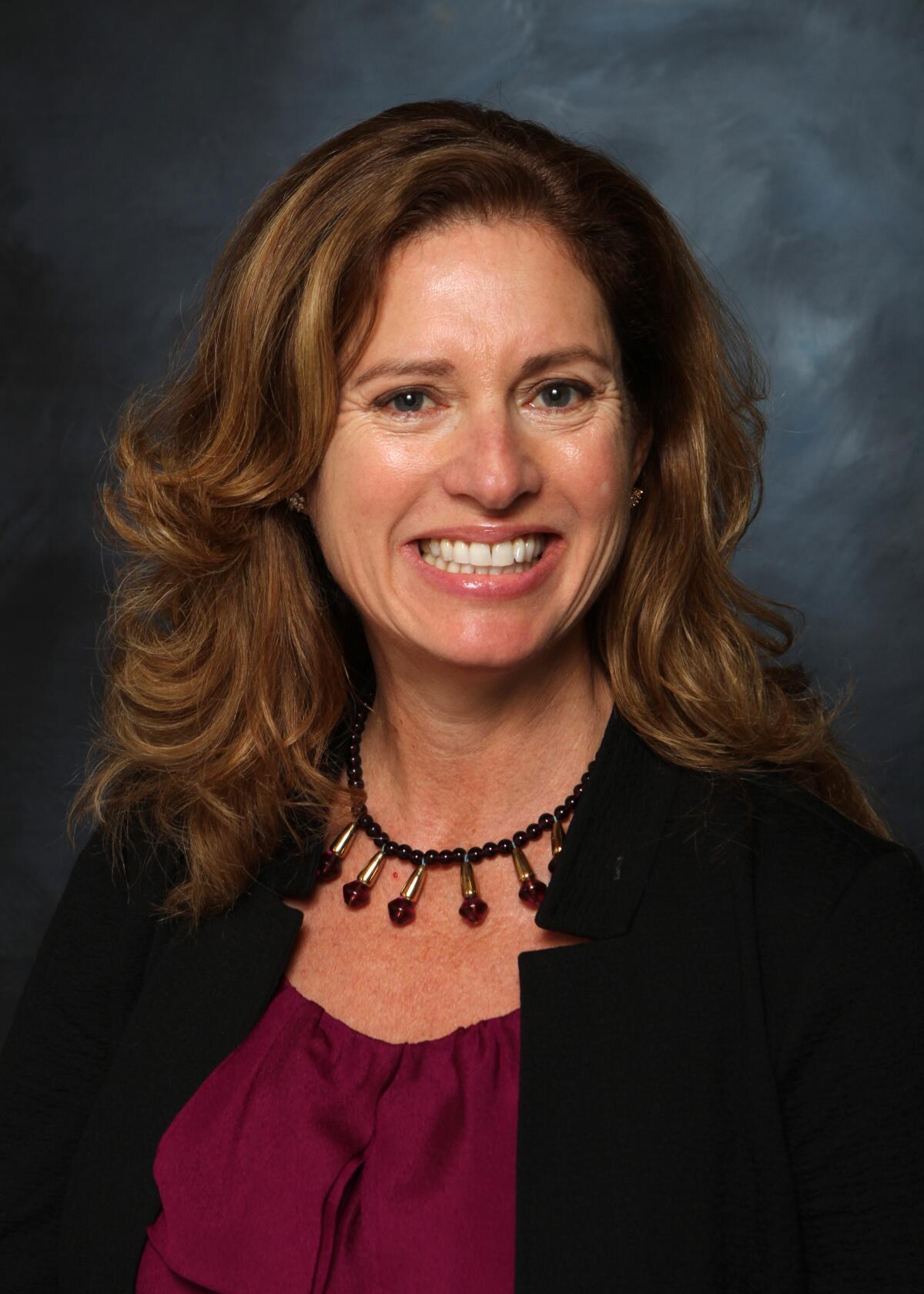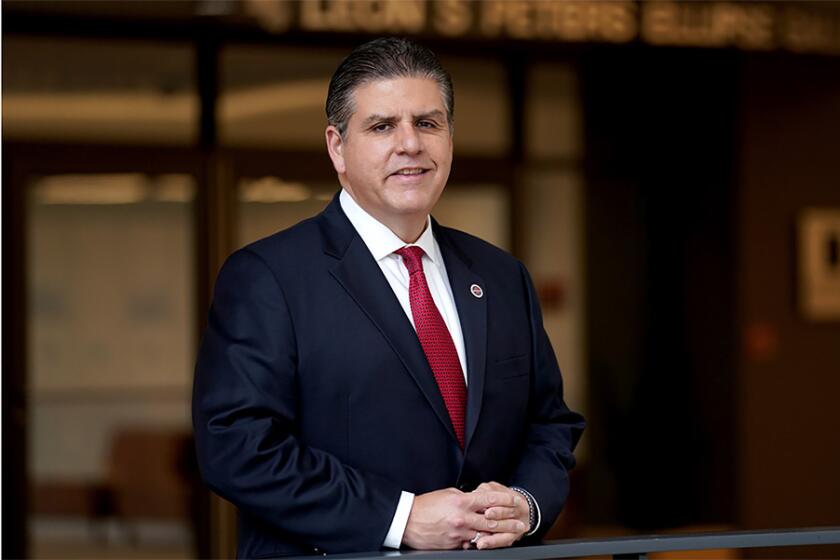CSU to launch investigation into Fresno State over handling of sexual harassment claims
California State University officials on Tuesday announced that they are launching an independent investigation into how Fresno State University administrators handled sexual harassment complaints against a former campus vice president.
Reports of harassment allegations at Fresno State have roiled the nation’s largest four-year public university system, leading to the recent resignation of Chancellor Joseph I. Castro and prompting state lawmakers and others to call for an independent probe.
Castro stepped down last month following reports that as president of Fresno State in 2020, he quietly authorized a $260,000 payout and retirement package for former Vice President of Student Affairs Frank Lamas, who was the subject of complaints of bullying, intimidation and sexual harassment that began in 2014 and continued through 2019.
Chancellor Joseph I. Castro’s resignation follows outcry over his handling of sexual misconduct and workplace harassment allegations while he was president of Fresno State.
“It is important that we understand how campus leaders at Fresno State responded to the workplace concerns about Dr. Frank Lamas,” CSU Board of Trustees Chair Lillian Kimbell said in a statement. “We will investigate the past to reveal potential new facts, learn and take appropriate action.”
Kimbell’s statement was in sharp contrast to her initial defense of Castro’s handling of the Lamas case; she had said Castro “acted in accordance with CSU policy in this case and used the management tools available to him to address the situation.”

After Castro’s resignation on Feb. 17, trustees announced that they would launch an outside probe of how Title IX complaints are handled across the 23 Cal State campuses but did not order an investigation into Fresno State.
As part of Lamas’ settlement, he received a glowing letter of recommendation from Castro. Lamas has said he did nothing wrong, maintaining that he received positive evaluations while at the university.
Castro has said he agreed to the settlement with Lamas after consulting with Cal State attorneys and then-Chancellor Timothy P. White. Three weeks later, trustees announced Castro as the new chancellor.
Records show that the settlement was made on behalf of the Cal State trustees. But former board members said they were not informed of the deal when they selected Castro to become chancellor after White retired at the end of 2020.
Trustees voted to review how Title IX cases involving sexual and gender harassment are handled across the Cal State system.
Castro said he did not tell trustees about the investigation and settlement during the chancellor search, believing that White would have relayed the information if he deemed it necessary.
Two former trustees told The Times the board should have been notified of the settlement.
“I don’t think that Joe Castro was given due process, and I think the board of trustees really missed an opportunity to get to the bottom of this,” former trustee Silas Abrego said in an interview, adding that an investigation was needed to determine how the settlement was brokered and why trustees were not notified.
“No one operates in a vacuum when allegations of sexual harassment come up,” Abrego said.
It was unclear Tuesday whether the Cal State investigation will examine why the board was not informed of the Lamas settlement.
“I cannot say specifically as to whether or not [the investigation] will look into communication [and] notification with the board,” Cal State spokesman Mike Uhlenkamp said. “These are details that still need to be determined.”
Cal State also announced that it will revise its retreat rights policy — a provision negotiated upon hiring that gives an administrator the ability to retreat to a faculty position, even if they’re fired. In the case of Lamas, who had such rights, Castro and Fresno State’s vice president of administration and finance Deborah Adishian-Astone previously told The Times that a settlement agreement was the only way to ensure that he left the Cal State system entirely without the ability to retreat.
“Retreat rights are very important and valuable to our community,” acting Chancellor Steve Relyea said. “That opportunity to retreat should be extended to individuals in good standing with the CSU, not to individuals who have engaged in significant misconduct. The policy needs systemwide clarity, consistency and modernization, thus we are reforming it.”
Those who have engaged in sexual harassment or misconduct, for example, would no longer have the option to retreat under the new policy.
Castro, who is still finalizing a settlement agreement with Cal State, was approved in 2020 to retreat to a faculty position at Cal Poly San Luis Obispo. According to the Chancellor’s Office, he has not informed the university if he will utilize that option.
More to Read
Sign up for Essential California
The most important California stories and recommendations in your inbox every morning.
You may occasionally receive promotional content from the Los Angeles Times.













